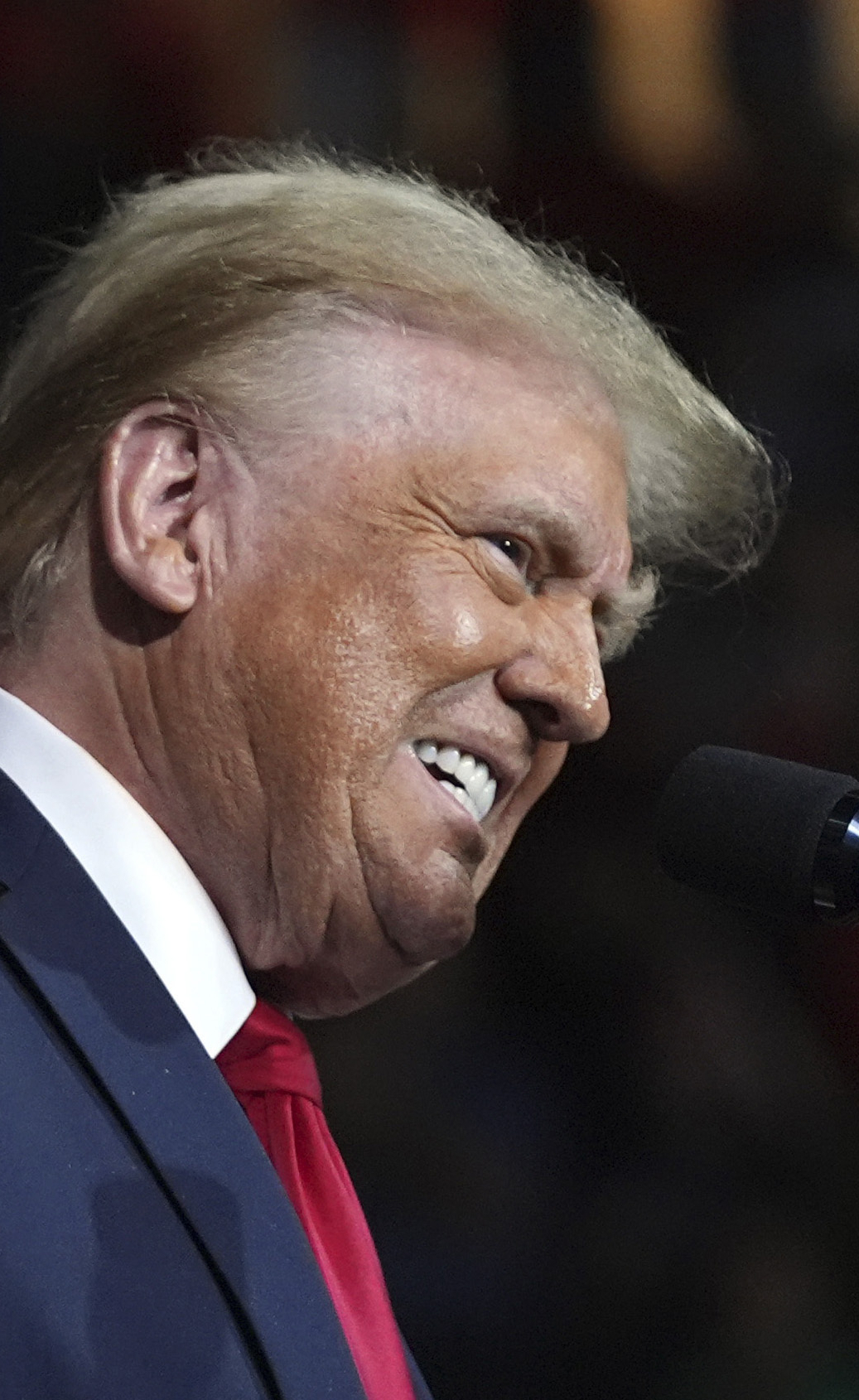
 |
| Donald Trump speaks at a campaign rally at the Salem Civic Center on Saturday in Salem, Va. (AP-Yonhap) |
A second Donald Trump administration is expected to bring shifts and unpredictability to the US-South Korea alliance, potentially increasing pressure on Seoul to take on a larger share of the burden as a US ally, experts said Wednesday.
Another key focus will be how Trump might address North Korea's denuclearization, especially amid growing skepticism about Washington's commitment to this goal, as well as his approach to Russia's war in Ukraine, where North Korean troops have been sent to support Moscow, they said.
Trump, known for his transactional view of alliances, may seek to renegotiate the defense cost-sharing agreement with South Korea, potentially jacking up Seoul's share of the costs for stationing the 28,500 US troops here.
"The first thing he'll likely do is 'anything but Biden,' and for him, the defense cost deal will be one of the easiest ways to demonstrate that to the outside world," said Choi Kang, president at the Asan Institute for Policy Studies.
Last month, Seoul and Washington reached a new five-year Special Measures Agreement (SMA) until 2030, under which South Korea will pay an increase of 8.3 percent to 1.52 trillion won (US$1.19 billion) in 2026 and annually raise its payment in line with the rise in the consumer price index.
During Trump's first term, the previous SMA negotiations were grueling and resulted in only a one-year deal, which was later settled early in the Biden administration. Trump had demanded that Seoul pay as much as $50 billion for the upkeep of American soldiers.
Trump continued this mantra during his campaign this year, describing South Korea as a "very wealthy" nation and a "money machine," suggesting the US might withdraw its troops from South Korea if Seoul does not increase its financial contributions to support them.
Trump could use the SMA as a pretext to reduce the allies' joint military exercises or to demand a bigger share of the costs for the US deployment of strategic assets to South Korea, according to Park Won-gon, a professor at Ewha Womans University.
"Trump could certainly readjust the role of USFK, if not withdraw them entirely, and consider repositioning the troops to locations outside the Korean Peninsula as a way to counterbalance China," Park said. "We should be prepared to deal with these possibilities."
Trump's "cost-benefit" approach to alliances may also apply to US engagement in the growing number of minilateral security groupings of like-minded countries, such as the trilateral cooperation framework with South Korea and Japan, as well as the AUKUS partnership involving Australia, Britain and the US.
"Trump wouldn't backtrack on the Camp David (summit)," professor Park said, referring to last year's trilateral summit among President Yoon Suk Yeol, US President Joe Biden and then Japanese Prime Minister Fumio Kishida.
The Indo-Pacific strategy existed even under Trump, and he may try to take advantage of these groupings to explicitly make more demands because they can alleviate some of the burden the US carries for its allies," he said.
Meanwhile, how Trump will handle Russia's war in Ukraine will likely have an implication on North Korea's deployment of troops to Russia.
Concerns about an escalation of the war are rising amid reports that North Koreans sent to Russia are currently engaged in combat in front-line areas to fight alongside Moscow. Trump has said he can end the war "in one day."
"I'm not sure how seriously Trump views North Korea's troop deployment, and that is a variable to watch," Choi said. "We can only hope that he will consider options for an early ceasefire, if not an end to the war, sometime soon, considering its potential impact on the North Korean troops," he added.
Also drawing attention is how the second Trump administration will approach North Korea's denuclearization, given the history of a failed nuclear summitry with the North's leader Kim Jong-un during his first term.
Recently, the absence of the phrase "complete denuclearization of the Korean Peninsula" from the policy platforms of both the US Republican and Democratic parties has raised questions about a potential shift to effectively recognizing North Korea as a nuclear-armed state, from pursuing its denuclearization.
"Trump is a man of extremes, but I think he would rather maintain the status quo than have another summit with Kim Jong-un," Park said.
"The absence of denuclearization in the policy platforms suggests that the US is focusing on the deterrence strategy against North Korean threats. Moreover, Trump will likely need to prioritize the war in Ukraine and the situation in the Middle East," he said.
Chun Yung-woo, chairman of the Korean Peninsula Future Forum think tank, says the lack of the phrase should not be interpreted out of proportion.
"We shouldn't view this as the US giving up (on North Korea) just because it's been pushed to the back burner," Chun said. "What is crucial is to continue our denuclearization policy in a way that protects and advances our national interests."
Choi of the Asan Institute suggested Seoul push for an early summit between Yoon and Trump in an effort to reaffirm the alliance commitment.
"We should take the 'top-down approach' favored by Trump," Choi said. "Having an early summit would allow us to reach broader agreements."









